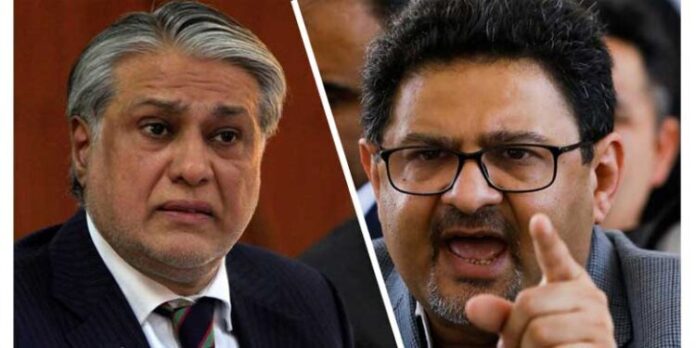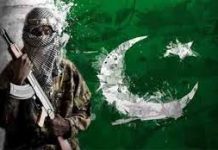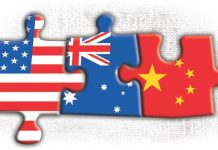LAHORE(Nadeem Abbas) Pakistan’s Finance Minister Ishaq Dar on Sunday morning
announced a Rs35 increase in the prices of petrol and diesel, in a televised address just minutes before the new prices went into force. In the address Dar reveals the price revision that went into effect 10 minutes later.
Fuel prices as of 11am, Jan 29:
Petrol: Rs249.80 per litre
High-speed diesel: Rs262.80 per litre
Kerosene oil: Rs 189.83 per litre
Light diesel oil: Rs187 per litre
“The Pakistani rupee saw devaluation last week and now we are seeing an 11 per cent increase in the prices of petroleum products in the international market,” he said.
Commenting on the development, equities expert said that the petrol price hike was “in line with expectations”. “This is a partial increase as it does not incorporate recent exchange rate depreciation. More increase to come in mid-February,” he tweeted.
The decision came days before an International Monetary Fund mission will visit Pakistan later this month to discuss the stalled ninth review of the country’s current funding programme. Last week, the Pakistani rupee lost close to 12 per cent of its value
after the removal of price caps that were imposed by the government but which were opposed by the IMF.
Pakistan faces a balance of payments crisis and fall in value of the Pakistani rupee will push up the price of imported goods.
Energy comprises a large part of Pakistan’s import bill.The government of Pakistan Democratic Movement faces an uphill task if it follows the conditions of IMF, there will be more inflation and public reaction as general elections are approaching fast but at the same time if govt gives concession to the public, it faces strong reaction from the IMF Meanwhile, PTI chairman and former PM Imran Khan criticised the petrol price hike, saying that the total mismanagement of the economy by the imported government has “crushed the
masses and salaried class”. “Electricity and gas price hike and
35% unprecedented inflation expected with Rs200bn mini- budget,” he tweeted.
PTI’s Asad Umar said that the public was fed up with inflation. “May Allah have mercy on these people,” he added. Former finance minister Shaukat Tarin said there would be another hike in fuel prices when the IMF mission would visit Pakistan
next week.
Ahead of Dar’s announcement, on Saturday, rumours of a massive hike in petrol prices resulted in long queues at petrol pumps in many parts of the country. Reports shared on social media had said that the prices of petrol and diesel wereexpected to go up by between Rs45 to Rs80 on Feb 1, 2023.
“We saw a report on social media that oil prices will go up due to the surge in the dollar’s value and global petroleum rates,”
Ali, who queued at a petrol pump, told London Post. After a decline in the value of Pakistani currency, the public is facing a new wave of price hike after increase in the prices of
oil, gas and masses will observe hike in the prices of commodities, buses fares and in other forms and manifestations.
Ammar Ali Jan, a writer, a blogger and social media activist addressing an inflation march participants in Lahore said it is high time that elite class must share the burden of economic crisis as general public is facing this burden alone since the creation of the country. He said Pakistan elite gets 2.5 trillion rupee subsidy annually in various forms. He said it is time that each and every section of society face burden of the economic
crisis.
Muhammad Ali, a participant of the rally said government must abolish subsidies on oil, gas and electricity to the politicians,bureaucrats, judges and generals. He said if a person who earns only Rs25000 is managing his expenses, then govt officials who have salaries in hundred thousands should also pay bills like laymen.
M Arlsan, a young man who was standing in a long queue at a filling station said in order to control economic crisis, the incumbent govt must curb imports and there should be
complete ban on the imports of luxury vehicles and other luxury items and only life saving foods and medicines’ import should be allowed so that flight of dollar can be controlled and
government should incentivize exports so that the balance of payment issue should come under control.
Syed Shabbar Zaidi, a former head of Pakistan’s Federal Bureau of Revenue (FBR) has suggested in a tweet that Pakistan need financial emergency for at least 15 years with radical steps as government should only allow business class foreign travel for tax payer above 10 million, there should be no dual national for govt servants, there should be compulsory closure of markets by 6pm to save energy.
A new United Nations report has found that economic privileges allowed to Pakistan’s elite groups, including the corporate sector, feudal landlords, the political class and the
country’s powerful military, add up to an estimated $17.4bn, or about 6 percent of the country’s economy.






